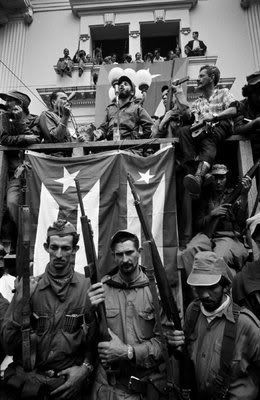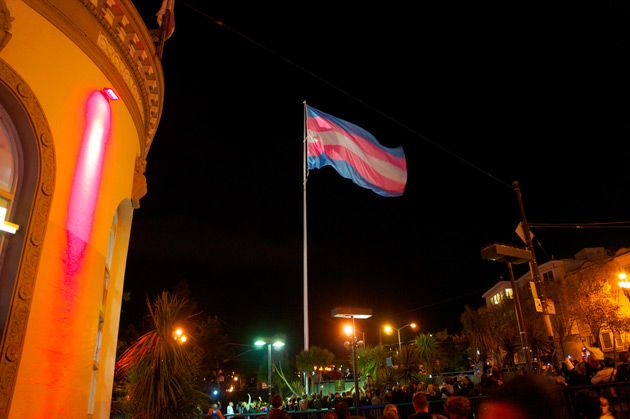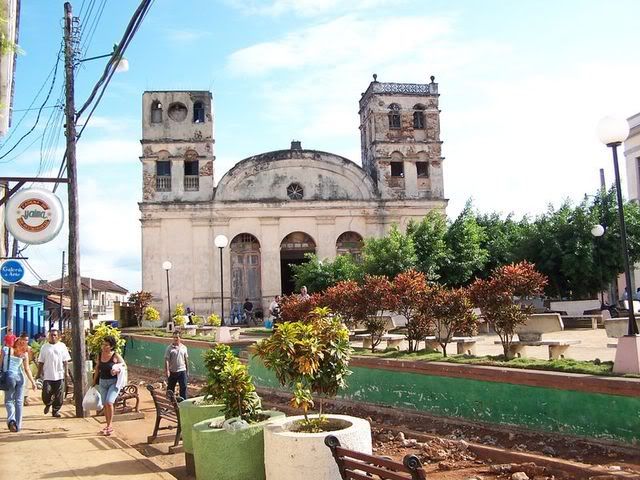cross posted from The Dream Antilles

50 Years Ago, Fidel Castro gives a 4 hour speech on the road to Havana
In a predictable and conflicted article, The New York Times, the newspaper of record, noticed that today the Cuban Revolution is celebrating its 50th Anniversary, its Golden Anniversary.
The Times writes in the fourth paragraph of an article focusing on how four bodies, presumably from Cuba but perhaps from elsewhere, washed onto a Florida beach in August and have not yet been identified:
Fifty years ago today, many Cubans cheered when Fidel Castro seized power in Havana, and even now the revolution attracts many fans – as evidenced by the Canadian tour agencies advertising trips “to celebrate five decades of resilience.”
But the bodies [the unidentified ones in the morgues] speak to a different legacy. Here in South Florida, where roughly 850,000 Cubans have settled over the years, repeated waves of painful exile and family separation define the Castro era. The revolution never met their hopeful expectations, the island they love has slipped into decay, and for many, this week’s golden anniversary provides little more than a flashback to traumas, old and new.
What a wonderful setting for remembering the 50th Anniversary of the Cuban Revolution. In a morgue. With bodies that might come from the US. That’s what the Times feels that Cuba deserves.
Of course, the senseless half century US blockade and the economic failure of the USSR and a continual US policy of economic destabilization might have something to do with the revolution’s present economic difficulties. But never mind seeing the many causes of Cuba’s complicated isolation and problems. It was “the revolution [that] never met their hopeful expectations…” and, according to the Times, not other factors.
The Times continues:
But for many, the revolution’s 50th anniversary has inspired a period of reflection. Cubans across Florida say they are mourning privately, or trying to forget, and formal commemorations are being kept to a minimum. If Miami in the 1980s was a place of militants, where “Havana vanities come to dust,” as Joan Didion famously wrote, today it is also a home to newer arrivals who ask: Must the pain go on?
A poll released this month by Florida International University shows that 55 percent of Cubans in Florida favor lifting the United States embargo against Cuba, up from 42 percent a year ago. It is the first time a clear majority has held that position since the survey began in 1991.
Even among those who support the 46-year-old embargo, like Senator Mel Martinez, a Republican, continued damage to families has become a more prominent concern.
And while we’re at it, let’s just ignore, in apportioning the causes for “private mourning,” the Bush administration’s severely restricting the amount of money US people can send to their relatives in Cuba and its clinging to a blockade that causes “continued damage” to families separated by the Florida Straits.
Even the Goldfather II had a clearer, more nuanced understanding of the Cuban Revolution.
There are many, many reasons to take serious issue with the Cuban government’s record on human rights and freedom of expression and lack of democracy. I don’t deny that. But it’s a mistake, a tragic mistake to overlook the fact that 50 years ago Cuban Dictator Fulgencio Battista was a US puppet and his nation was ripe for a popular Revolution. He was overthrown by a home grown revolution led by Fidel Castro. And it’s equally a mistake to overlook that for half a century a mere 90 miles away from Florida, Castro and his government, who nationalized and seized many foreign owned properties, have weathered exploding cigars, the Bay of Pigs, assassination attempts, destablization, fly overs, threats, a blockade, isolation, and persistent attempts to overthrow him from the most powerful nation on earth.
Credit where credit is due.
Nobody could have predicted 50 years ago that in 2008 Cuba would celebrate the Golden Anniversary of its Revolution in continued isolation. And nobody could have predicted that the US’s policy would be such a gigantic failure.

 Sometimes the news articles just start piling up and the best way to dismantle the pile is to do a diary which shares multiple stories. Tonight I have a trio of stories to share, featuring human rights progress Canada, the election of a transgender politician in Cuba, and a transgender summit (of sorts) at the White House here in the US.
Sometimes the news articles just start piling up and the best way to dismantle the pile is to do a diary which shares multiple stories. Tonight I have a trio of stories to share, featuring human rights progress Canada, the election of a transgender politician in Cuba, and a transgender summit (of sorts) at the White House here in the US.


